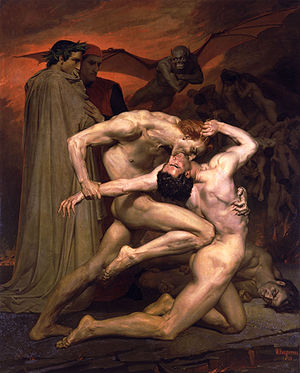Can people get out of hell?

[Updated 7/25/2023] Can people get out of hell? To answer this question, we need to consider two others: Is a person's fate determined permanently at death? If not, on what basis might those in hell get out? We'll address both questions in this post. "Dante and Virgil in Hell" by Bouquereau (public domain via Wikimedia Commons) Is a person's fate determined permanently at death? Many Christians answer "yes" to this question, typically citing Hebrews 9:27. In doing so, they understand this scripture to assert that upon death, a person is judged and the decision rendered at that time as to their eternal fate is then irreversible. However, in my view, using this passage in Hebrews to make that point is questionable. Note that the context of the verse is the universal scope of Jesus' substitutionary, atoning work, which he did "once for all" (Hebrews 9:26). He does not accomplish this work at some future time (such as some point p...